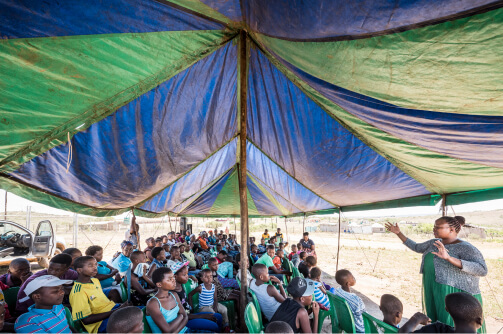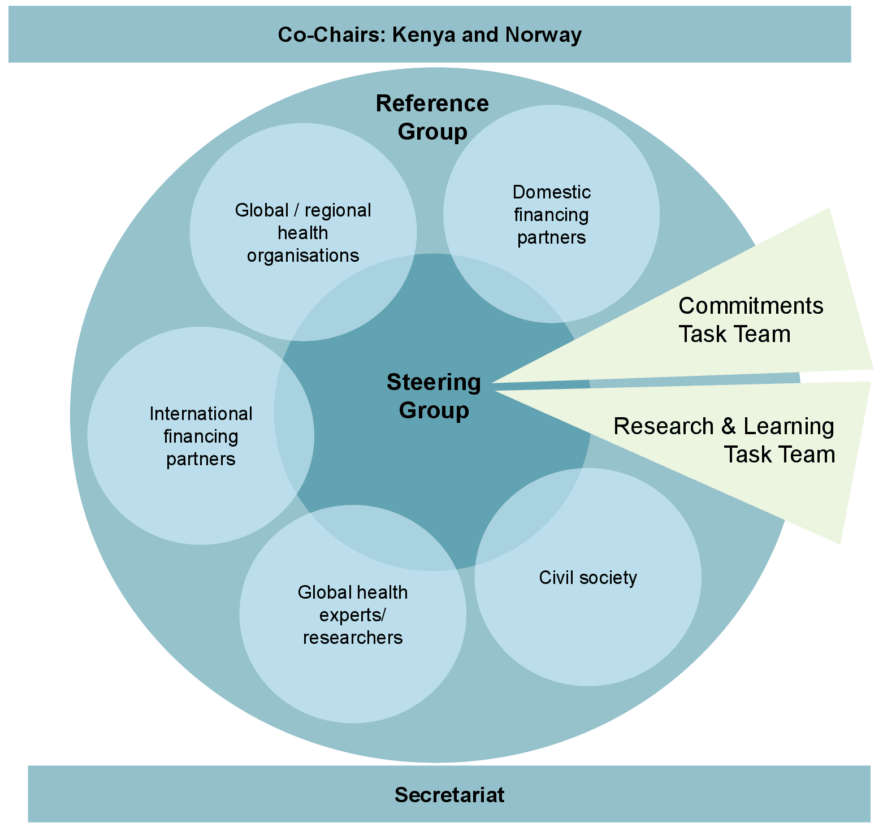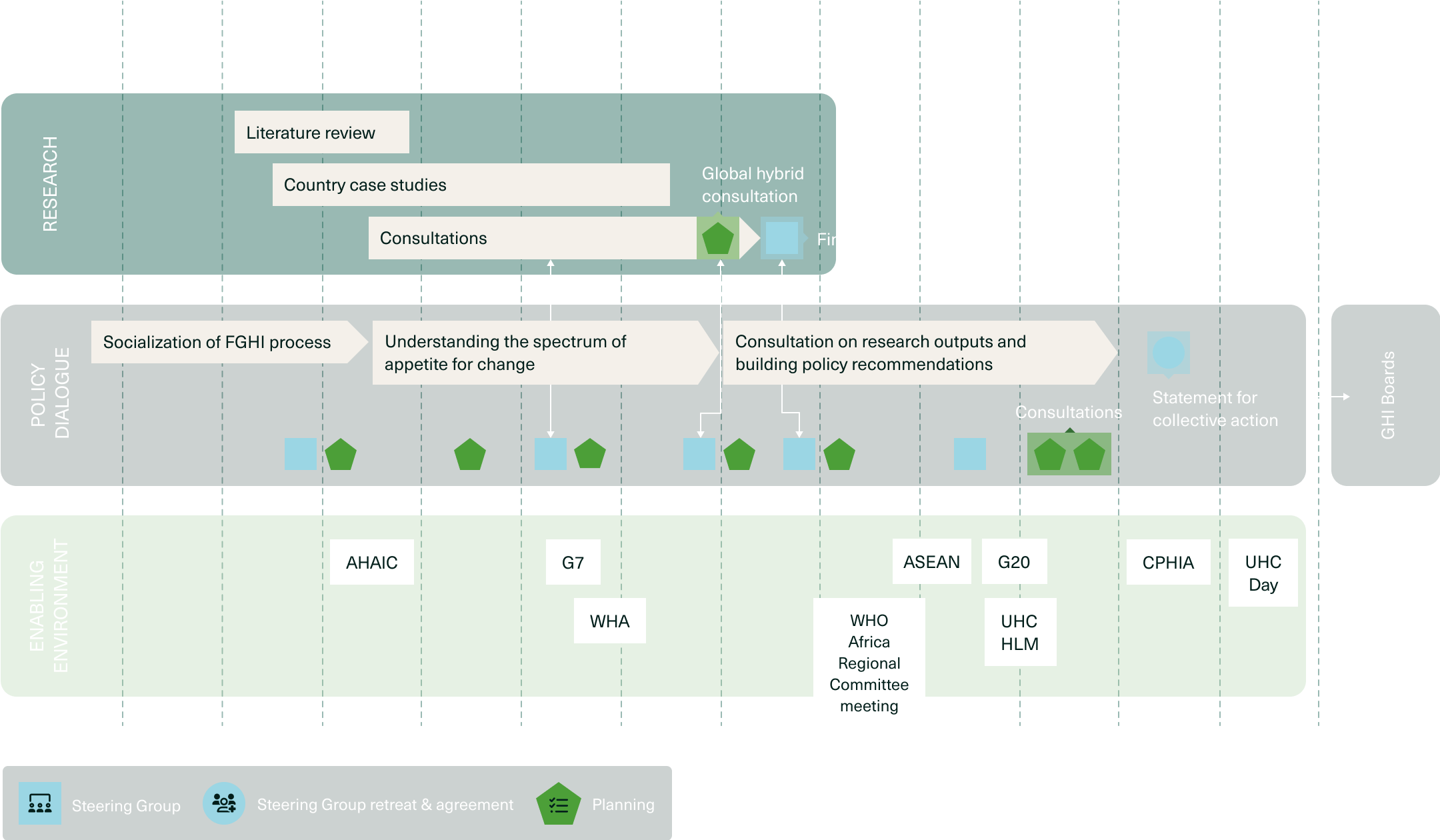Why the FGHI exists
Over the last two decades GHIs have contributed to enormous progress in protecting lives and improving the health of people globally and delivering on the Millennium Development Goals, including significant progress against individual diseases like polio, malaria, and HIV/AIDS, improving mother and child survival, and increasing coverage of specific interventions like vaccines. There is, however, increasing recognition of the need for greater attention to overarching, system-level coordination and structure of GHIs and their interface with other actors to better align investment behind Agenda 2030 and Sustainable Development Goal 3.
Reasons include:
- Significant epidemiological and demographic changes – notably aging populations and the growing burden of non-communicable diseases and mental health; growing threats from environmental degradation, climate change and new disease outbreaks; and enduring inequalities in health outcomes and health coverage.
- Political and economic shifts that make the effective use of available resources more important than ever.
- The evolving nature of the wider global health architecture as new actors and initiatives emerge, and regional bodies assume an increasingly prominent role.
- The need to address power imbalances in priority-setting and decision-making in global health, and ensure countries are in the driving seat.
- The inefficiencies created by the fragmentation of GHIs and their operating and funding procedures.
- The need to ensure sufficient prioritisation and coordination of health system strengthening investments for UHC.

By driving a concerted effort to increase the efficiency, effectiveness, and equity of the ecosystem of global health and global health finance, the FGHI process will contribute to wider ongoing efforts to maximise the public health benefits of external and domestic investments in health.
Who the FGHI process involves
The FGHI process is being overseen by a Steering Group of public health leaders from government, civil society, global and regional public health organisations, and philanthropies. It has been set up to support an open and inclusive process and is assisted by a small secretariat funded by the Wellcome Trust.
At the request of the FGHI Steering Group Co-Chairs, Wellcome is leading an FGHI Research & Learning Task Team that is supporting and advising on the delivery of a robust, action- and policy-orientated process of research and learning that will identify the opportunities for – and pathways towards – better alignment of the GHI landscape behind Agenda 2030 and beyond. Its work will feed into the broader process of political and technical dialogue overseen by the Steering Group.
The Research & Learning Task Team is overseeing the development of a research report commissioned by the Wellcome Trust to guide the FGHI process and ensure discussions are informed by evidence. It also provides space for members to share updates on other pieces of thinking, research or analysis that are relevant to the broader FGHI dialogue, and to foster peer discussion. The research is being undertaken by an international research consortium.
Stakeholders including other international financing partners, domestic financing partners, civil society, global and regional health organisations, and researchers and academic experts are being consulted as part of the research process.
Overview of the organisation of the FGHI process
Steering Group
Representative group of interested parties. Acts as a sounding board and guides work, ensuring buy-in
Reference Group
Convened as needed in different configurations, to allow broader consultations and dialogue beyond the Steering Group
Research & Learning Task Team
Supports timely delivery of robust, action-orientated research, and development and dissemination of recommendations
Commitments Task Team
The Commitments Task Team will support the evolution of the FGHI dialogue by providing technical support to develop a set of commitments for collective action.

Overview of the phases of the FGHI process
The FGHI is a time-bound process of dialogue, research, deliberation, and action to review and identify how the global health initiative ecosystem can be optimised. The key outputs of the FGHI will be Steering Group recommendations and a statement for collective action for change, to be published toward the end of 2023.
The FGHI process is comprised of three phases:
Phase 1 (to mid-2023)
January - July 2023
Listening and engaging phase, culminating in a research report and technical recommendations from the research consortium.
Phase 2 (mid-2023 – end 2023)
July - December 2023
Consulting on research outputs and recommendations phase, including translation of research recommendations into a Steering Group statement/agreement for collective action.
Phase 3 (2023 and beyond, to be developed)
December 2023 and beyond
Collective action by Steering Group members.
2023 Roadmap

